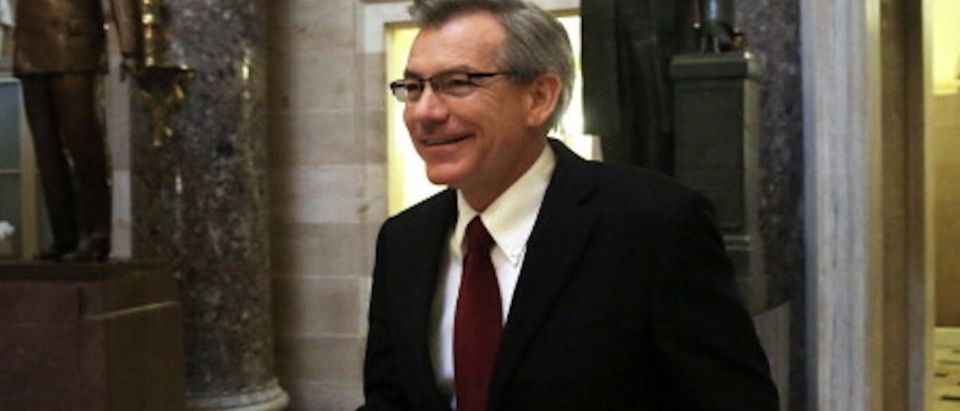A staffer who works in Republican Arizona Rep. David Schweikert’s Washington D.C. office has tested positive for coronavirus, the congressman announced Sunday.
According to Schweikert, the staffer, who was not named, is currently at home “following guidance from local health officials.” The congressman has shut down the D.C. office, telling staffers to work from home. He also said his staffers back home in Scottsdale, Arizona, will also work from home out of “an abundance of caution.”
“A member of our DC team has been informed by the Virginia Department of Health that they tested positive for COVID-19. They are resting comfortably at home and following guidance from local health officials. As a result of this positive test, my DC office will be closed with staff members working from home until further notice,” Schweikert said in a statement. “Given that I have interacted with the employee who tested positive, I will be working from home until otherwise told by doctors.”
My statement on COVID-19 and office closures: https://t.co/zXJZBtintV pic.twitter.com/icH2YLWgeQ
— Rep. David Schweikert (@RepDavid) March 15, 2020
A number of members of Congress have received tests for coronavirus, as the deadly disease continues to spread across the U.S.
President Donald Trump received a test for the virus, which came back negative. Republican South Carolina Sen. Lindsey Graham on Sunday also announced that he tested negative for coronavirus. (RELATED: Lindsey Graham Tests Negative For Coronavirus)
Republican Texas Sen. Ted Cruz was the first to announce a self-quarantine earlier in March, saying that he will be staying home in Texas for the week after he was informed that he met an infected individual who attended the Conservative Political Action Conference (CPAC). (RELATED: Ted Cruz To Stay Home In Texas For One Week After Saying He Met Person With Coronavirus At CPAC)
The House passed a bill Saturday morning that is set to provide coronavirus testing at no cost to patients and extend paid sick leave to workers in need. The Senate is currently working on passing legislation, which, if passed, would then be sent to Trump for a finalizing signature.


